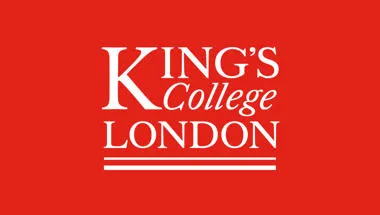
Dr Nicola Metrebian
Reader in Addiction Treatment Research
Biography
Nicola Metrebian is a Reader in Addiction Treatment Research in the Department of Addictions. Nicola joined King’s College London in 2005 having previously worked at Imperial College London. She has a background in Psychology and a PhD from Imperial College London Medical School. She has 20 years in addiction research developing and evaluating pharmacological and behavioural interventions for opioid use disorder. Dr Metrebian’s research falls into 3 main topic areas:1) Behavioural Interventions, 2) Naloxone for reversing opioid overdose, and 3) Heroin Assisted Treatment (HAT). Her methods expertise lies predominantly in clinical trials of complex interventions.
Nicola Metrebian’s current research includes developing and evaluating behavioural interventions/contingency management – including face-to-face (COMPEERS) and remote delivery by mobile telephone text message (TIES2) or App (CM4COYN, PRET), and examining the effectiveness of take home naloxone when administered by non-medically trained individuals (NalPORS).
Her previous work has included, evaluating supervised injectable heroin treatment for hard to treat heroin users (RIOTT Trial) and assessing the effectiveness of contingency management (financial incentives) in improving treatment outcomes for those with opioid use disorder receiving opioid agonist treatment (NIHR Research Programme Grant – Hepatitis B & PRAISe Trials). In 2015 she received an EMCDDA Scientific Paper award for her paper published in the Lancet reporting on the benefits of using small financial incentives to encourage the completion of hepatitis B vaccination among individuals receiving opiate treatment. In 2016 she (along with Professor Sir John Strang) received the King’s Award for Research Project of the Year for their research on contingency management.
Nicola is Co-lead of the MSc Addictions Treatment and Practice module, Chair of the Department of Addictions' Culture, Equality, Diversity & Inclusion (CEDI) Working Group, and an Associate Editor for the journal, Addiction.
Research Interests
- Opioid use
- Opioid Agonist treatment
- Behavioural interventions
- Contingency management
- Digital technology in healthcare
- Delivering interventions via mobile telephones
- Take Home Naloxone
Research Groups
- Drugs Research Group
- Contingency Management Programme
- Naloxone
- New heroin-assisted treatment
- Randomised Injectable Opiate Treatment Trial
- (RIOTT)
- TIES Project
Expertise and Public Engagement
- Senior Advisor for the National Institute for Health Research (NIHR) London Research Design Service
- Editorial Board for the journal, Contemporary Clinical Trials
Teaching
- Lectures on behavioural interventions, undertaking clinical trials and drug and alcohol policy on the MSc In Addiction Studies
- Contributes to the Addictions MOOC, the International Programme in Addiction Studies (IPAS), and the MSc in Psychiatric Research
- Supervises research projects on MSc In Addiction Studies and MSc Mental Health Studies
Research

Drugs Research Group
Substance misuse research within the Addictions Department is led by Professors John Strang and John Marsden.

Contingency Management Programme
This consists of five linked research studies which aim to develop a UK Evidence Base for Contingency Management in Addiction Treatment.
Project status: Ongoing

New heroin-assisted treatment
Recent evidence and current practices of supervised injectable heroin treatment in Europe and beyond
Project status: Ongoing

Naloxone
Naloxone is an opiate antagonist which reverses the effects of a heroin overdose.
Project status: Ongoing

Randomised Injectable Opiate Treatment Trial (RIOTT)
At least 5–10% of heroin addicts fail to benefit from established conventional treatments but whether they are untreatable or just difficult to treat is unknown
Project status: Ongoing

TIES Project
Telephone delivered Incentives for Encouraging adherence to Supervised methadone consumption:development and feasibility study clinical and cost effectiveness.
Project status: Ongoing

Test page for pilot Contingency Management for Carry-On-You Naloxone (CM4COYN) project
Test page for pilot Contingency Management for Carry-On-You Naloxone (CM4COYN) project
Project status: Starting
News
Experts gather to discuss innovations and strategies to detect and prevent opioid overdose deaths
On Thursday 4 September, King’s welcomed clinicians, policy makers and researchers to share and discuss the latest innovations and strategies to detect and...

Research

Drugs Research Group
Substance misuse research within the Addictions Department is led by Professors John Strang and John Marsden.

Contingency Management Programme
This consists of five linked research studies which aim to develop a UK Evidence Base for Contingency Management in Addiction Treatment.
Project status: Ongoing

New heroin-assisted treatment
Recent evidence and current practices of supervised injectable heroin treatment in Europe and beyond
Project status: Ongoing

Naloxone
Naloxone is an opiate antagonist which reverses the effects of a heroin overdose.
Project status: Ongoing

Randomised Injectable Opiate Treatment Trial (RIOTT)
At least 5–10% of heroin addicts fail to benefit from established conventional treatments but whether they are untreatable or just difficult to treat is unknown
Project status: Ongoing

TIES Project
Telephone delivered Incentives for Encouraging adherence to Supervised methadone consumption:development and feasibility study clinical and cost effectiveness.
Project status: Ongoing

Test page for pilot Contingency Management for Carry-On-You Naloxone (CM4COYN) project
Test page for pilot Contingency Management for Carry-On-You Naloxone (CM4COYN) project
Project status: Starting
News
Experts gather to discuss innovations and strategies to detect and prevent opioid overdose deaths
On Thursday 4 September, King’s welcomed clinicians, policy makers and researchers to share and discuss the latest innovations and strategies to detect and...

